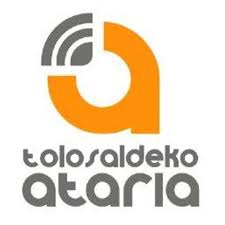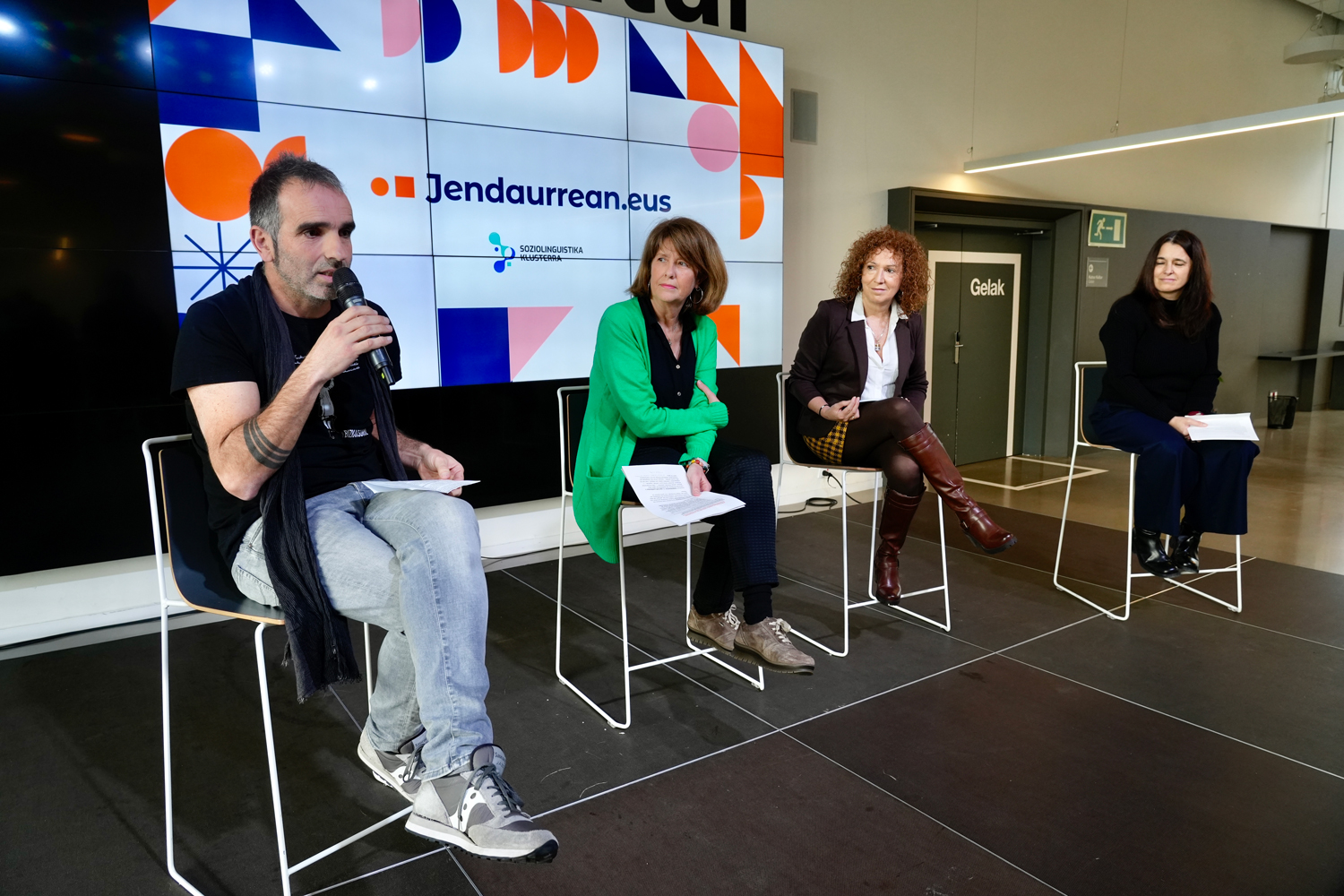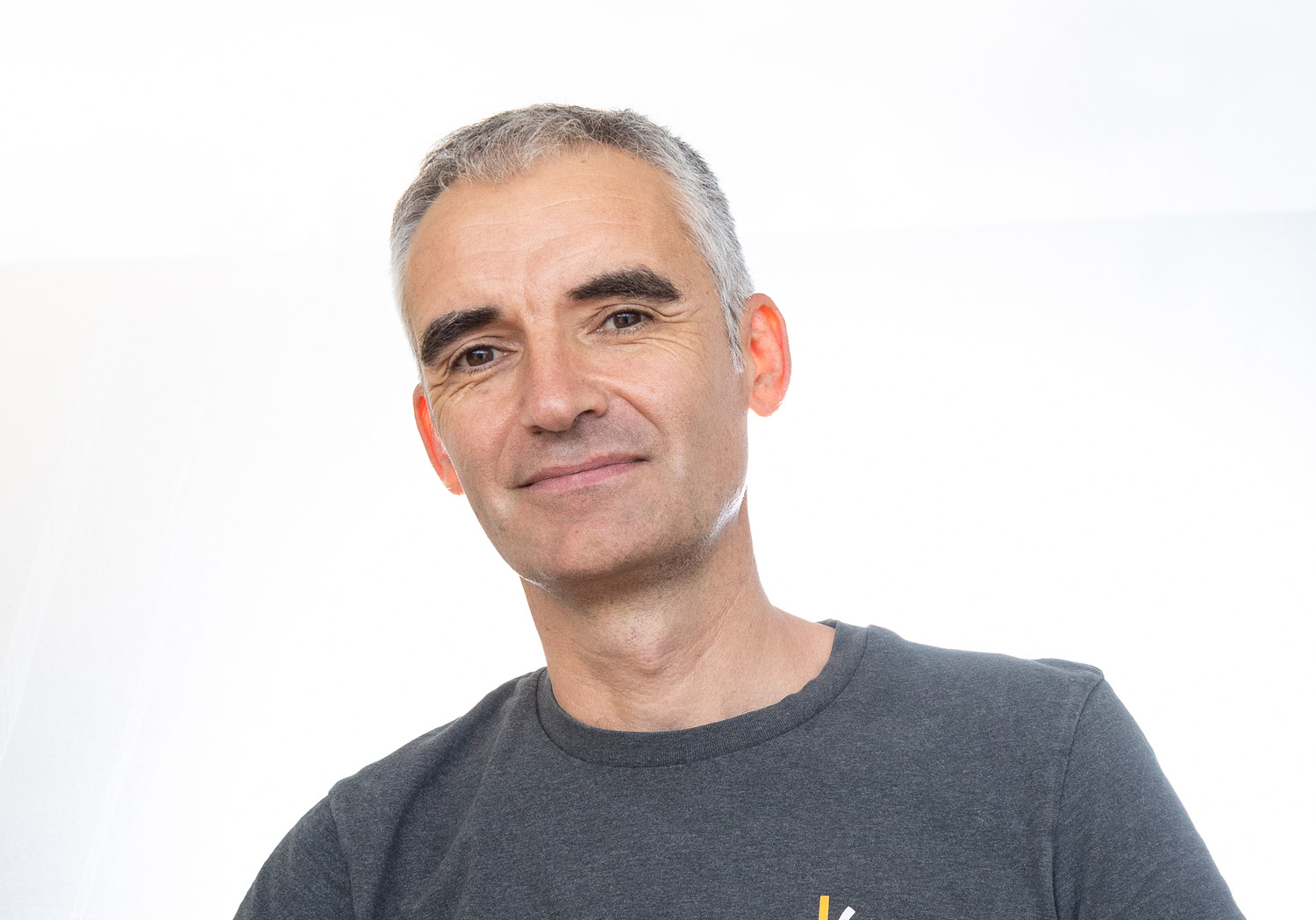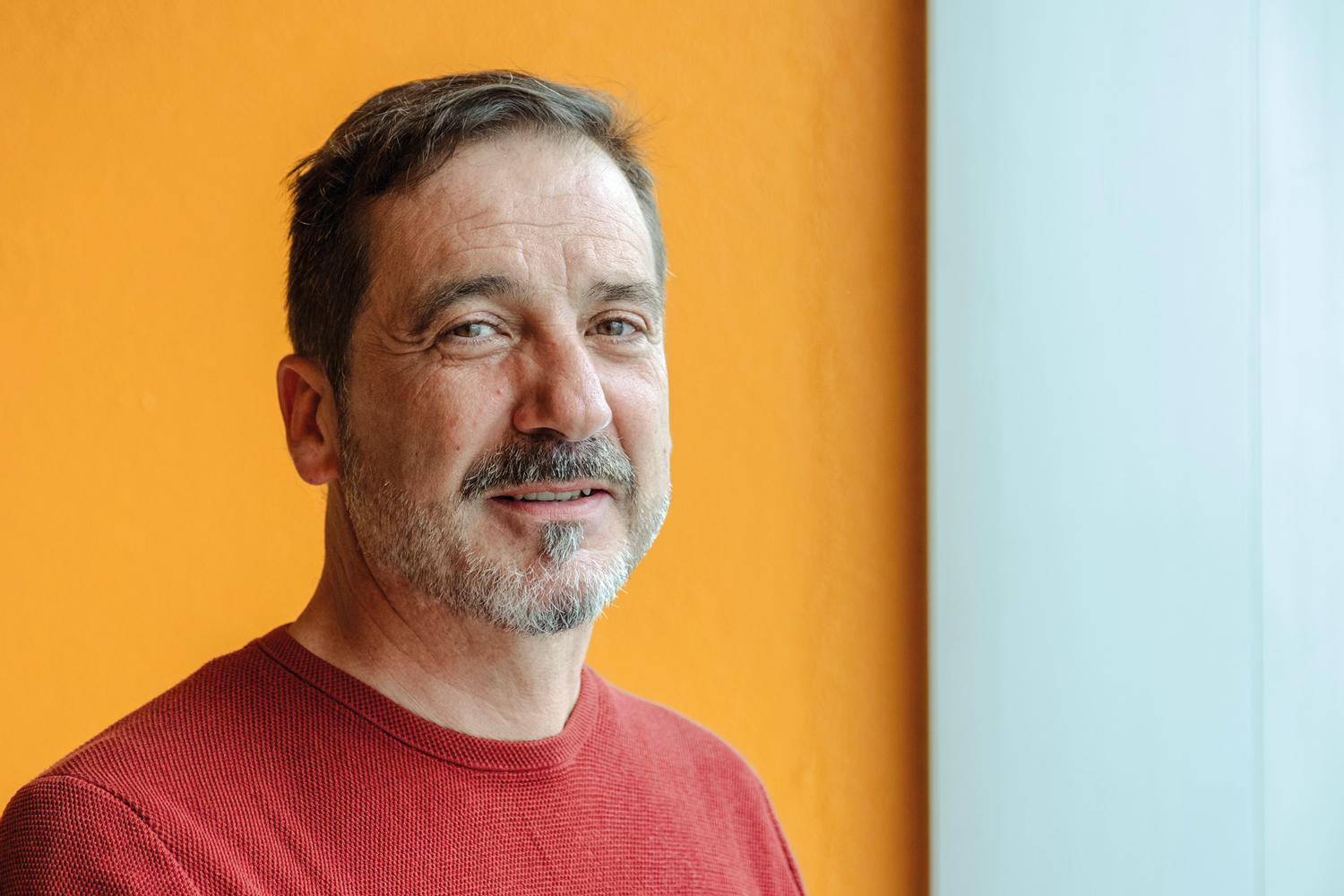"Students love Euskera, but they do not use it, at least they are aware of it"
- For two years, researcher Ibartarra Eider Saragueta has followed the students of a model D center in Bizkaia to make a thesis about the language. He's collected in a book of about 400 pages, in detail, everything about language.

The researcher of the UPV/EHU Eider Saragueta (Ibarra, 1989) has analyzed in her thesis the use of juvenile language, identity and jumps between languages. Translanguaging in multilingual education. He has presented his work under the title An ethnographic investigation.
What exactly have you analyzed in this thesis?
I have analyzed three interrelated themes: on the one hand, the use of the Basque language, on the other, the identity of the students and, finally, the linguistic uses that are made in the classroom.
For what purpose have you done it?
It has had a number of objectives. On the one hand, I have listened to the voice of the students and I have gathered the opinion on the subject. In fact, great research is often done, but we lack the voices of the protagonists. On the other hand, I wanted to analyze, investigate and collect data on the use of your language.
To do so, he has worked in a school in Bizkaia.
By 2014, our research team decided to launch a project or intervention. To do so, we received several grants, which led us to make a broad call to educational centers. A school in a town in Bizkaia gave us the yes and I was with the students for two years, following this intervention.
What sample did you use for the research?
I did it with students ages 10 to 12. The Amaraberri methodology is used in this school and students of both ages are gathered in the classroom.
And have the teachers been involved in the study?
The implementation of an intervention, inevitable and fortunately, requires the help of teachers, management teams and the school community. The intervention was directed directly to the students, but in the classroom there was a teacher. I've had a close relationship with them, a constant relationship. I've been given a lot of information.
How has this intervention been implemented?
One of the keys to intervention is, in my opinion, the adequacy to the context and, in this case, to the school. Before starting our project at school, we held several meetings to adapt all the content. Then, in the intervention, we carry out numerous activities with the students. Among them, for example, they had to read a text in three different languages and then had to answer the questions in Basque. Thus, they were able to see the links and the relationships between the different languages.
In addition to the Basque language, you have also worked the jumps between languages.
We conducted the interventions for the sessions of Euskera, Spanish and English. Today students are multilingual, but what we have to understand is that they do not have the same level in all languages. However, they can use the resources they have in one language to learn others. Thus, in some cases, pupils can use the language they have received at home to learn other languages.
When it comes to learning one language, therefore, another could help.
Those of us who are multilingual are full speakers and we must have the opportunity to use all languages. In our case, at school, we have the opportunity to strengthen the three languages. To do this, it is important to use previous knowledge. For example, to use the knowledge of Euskera when it comes to learning Spanish, English or some language they learn in the future.
Beyond language, you've also looked at identities.
I have seen that there is a close relationship between languages and identity. I wanted to see the identity of the students at the time. After all, identity is flexible, personal and unique, but it has many edges, and being that broad identity, I wanted to take a picture and see what those students were doing. In this case, several students have shown that they feel Basque, but if we look at their use, they have no tendency to use Euskera. There you create a different scenario, and it's important to look at it.
In this type of thesis the most interesting will be the results and conclusions.
During the intervention, the students had to perform several exercises. It should be clarified that these students, for example, used Euskera to address it to the professor, but informally, to comment on anything else, they used Spanish. However, as a result of the intervention, I have seen that when they did an exercise in a language other than the Basque language, if they had to do a part in Basque, all the conversations between them were in Basque.
Sometimes we put limits on the use of students, we try to delimit languages in a very rigid way, but often flexibility helps. It is true that our intervention has been planned and with specific objectives; no language can be spoken at any time. We also make that clear, because Euskera is our language and our axis.
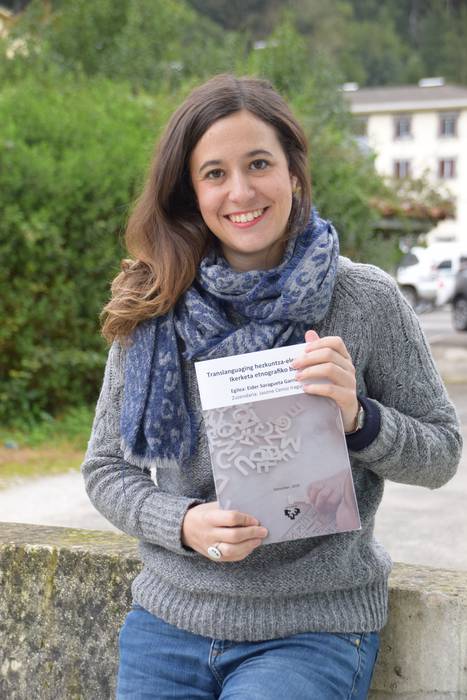
What conclusions did you draw with regard to the Basque Country?
We have seen that the feelings students have about the Basque country are very positive; they like it, they like it, but they recognize that they do not use it. They say that sometimes they talk to their friends, but it's not the most common thing, they don't have a habit. What's interesting is to know that you're aware of it. And they're also very clear that the key to the future of Euskera is in use.
Does the situation or the environment encourage them not to use them?
It's something that happens to anybody. If you go to a store and speak the first word in Spanish, if you also do it in the second store, and if you do it also in the service, it is possible that in the fourth interview, probably by resignation, it is done in Spanish. These students know what's in their village. And those of us who have a Basque conscience also know what the situation is. What happens is that it's pathetic. In the case of these students, at very early ages, they are aware of the situation and adapt to it.
Once this thesis was completed, in what situation does the Basque Country see?
Today, I think schools are doing a great job. Model D was launched about 30 years ago and we've seen that many boys and girls have been Euskaldunized. Unfortunately, this is not a great boost in use. The school can't do everything alone, and that's very clear to the teachers as well. There are a number of institutions, actors and institutions involved, and there is a need to work together on all of them. I think projects like Euskaraldia are good examples.
In fact, you've studied a school, but when those students leave school, they have more life.
These students use different languages, not only Basque and Spanish. Many have another language or two different languages at home. And when you go to school, you show three languages. It is hard for us to realise, but there are many languages in our peoples. In the town where I did the study, for example, about 100 languages are spoken. The linguist Carme Junyent, in a recent interview in the weekly Argia, said that what will strengthen the Basque language is plurilingualism. I agree with him.
You yourself understood this during the investigation.
Yes, languages can be complementary to each other. If a student has a minority language at home, it also helps him to know that the Basque language was forbidden, that the language was minorities. That's where empathy emerges.
Linguistic awareness therefore develops.
In a sense, through different exercises we have pretended that the students have this awareness of language and above all that they reflect on it.
Did you draw any other conclusions in the investigation?
As an implication, I would say that there are many different situations in Euskal Herria. It is not the same as the situation in a neighbourhood of Bilbao, which can be found in Donibane Garazi, or which can be seen in Lizartza. I think it would be interesting to do other work of this kind and see what results have been obtained in others.
Going through the thesis to your trajectory, how have you come to do this work?
I studied teaching at the University. Later, I studied Social and Cultural Anthropology in San Sebastian, after which I studied the Master's Degree in Plurilingualism and Education. For a moment, I saw my studies hanging out, but after the master's, I had the opportunity to do the thesis. The director of this work has been Jasone Zenoz, a university professor, who told me that my profile could be the right one to start doing this work. In the 2014-2015 academic year, I asked for a predoctoral scholarship from the Basque Government, and I was lucky enough, so I had the opportunity to go straight into the project.
And today, you're still back to college.
I am currently working at university with the research team DREAM – Donostia Research group on Education and Multilingualism. I have had the opportunity to stay and follow me, and we are now immersed in other projects in the same line of work. I am very happy and happy.
You've worked with the Basque country as a hub. Did you have a concern about languages?
It is a subject that we often bring out those of us who are vasco-speakers, because we are concerned. The institutions are also concerned, in short, because we have seen the situation in several studies carried out by the Cluster of Sociolinguistics and the Basque Government. In general, the Vasco-speakers are concerned about the use of Euskera.
Once the thesis is finished, you have a book of about 400 pages in your hands.
Yes, specifically I made a 418-page thesis. It is very broad, as it is an in-depth investigation, with a lot of information, examples and data. The voices of the students have a lot of nuances, and I wanted to pick up all of them. It is the result of two years of direct observation.
I think it will have to do with the hangover of the profession, but I have to acknowledge that I look at the linguistic landscape of the places I visit. Signs that stick on the walls, hanging from streetlights, billboards, and supports that appear in shops or companies (signs,... [+]



